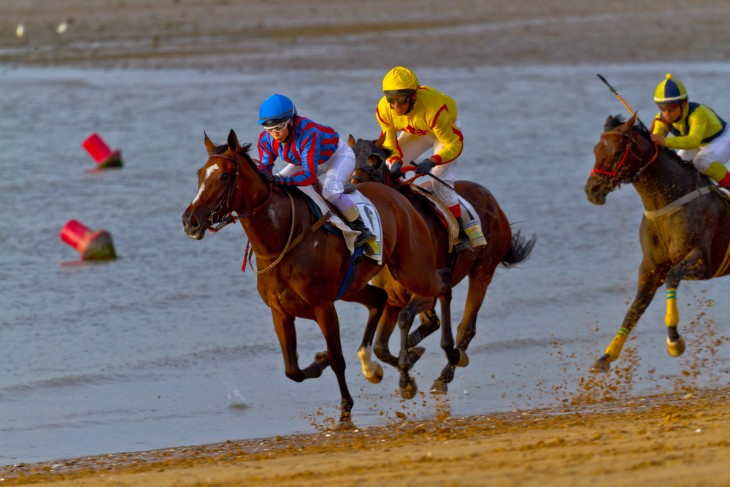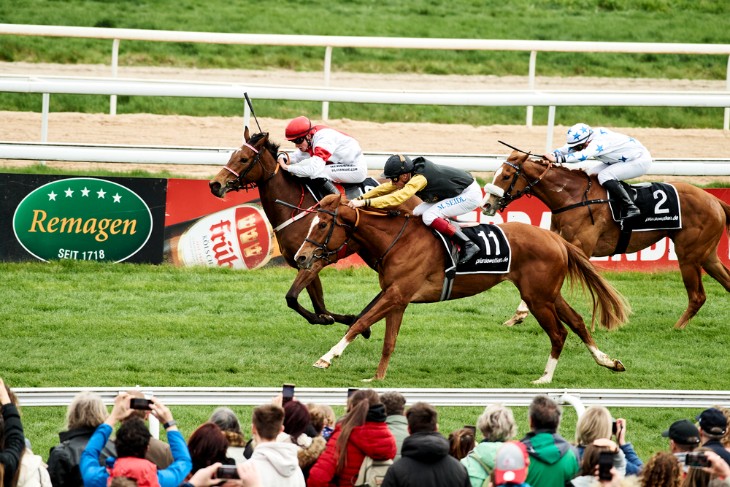This seemingly small abbreviation, denoting the withdrawal of a horse from a race, sets off a chain reaction of adjustments, from odds recalibrations to strategic reevaluations. It highlights the unpredictable nature of the sport, emphasizing that the excitement comes not only from the race itself but also from the unforeseen events that engage both the audience and the competitors.
What Does WD Mean In Horse Racing?
In horse racing, "WD" stands for "withdrawn." When a horse is withdrawn from a race before it starts, it is marked as WD in the race program. There could be various reasons for a horse being withdrawn, such as injury, illness, or other unforeseen circumstances that make it unable to participate in the race. When a horse is withdrawn, bettors who placed wagers on that horse will typically receive a refund. This information is crucial for bettors, trainers, jockeys, and race organizers, as it affects the composition of the race and the betting odds.
The term "WD" in horse racing signifies that a horse that was initially supposed to participate in a race will not be competing due to various possible reasons, ranging from health concerns to logistical issues.
Here are a few reasons why a horse might be withdrawn from a race:
- Injury or Illness: If a horse sustains an injury or falls ill before the race, it might be withdrawn to prevent further harm or discomfort. Horses are athletes, and just like human athletes, they can get injured during training or even in the race paddock.
- Unsuitable Track Conditions: Horses have preferences for the type of track surface they perform best on. If a horse is not comfortable with the current track conditions (such as muddy or sloppy conditions due to rain), it might be withdrawn from the race.
- Equipment Issues: Sometimes, a horse might have problems with its racing equipment, such as a broken saddle or bridle. If these issues cannot be quickly resolved, the horse might be withdrawn.
- Behavioural Problems: Horses, like all animals, can sometimes behave unpredictably. If a horse becomes unruly or agitated and cannot be controlled, it might be withdrawn for the safety of the jockey, handlers, and other horses.
- Logistical Problems: Occasionally, logistical issues such as transportation problems can prevent a horse from reaching the racetrack on time, leading to its withdrawal from the race.

Betting - The Impact of a Horse Being Withdrawn
1. Refunds: When a horse is withdrawn from a race, bookmakers and betting platforms typically offer refunds to the bettors who placed wagers on that horse. This refund policy ensures that bettors are not unfairly penalized due to unforeseen circumstances. If you placed a bet on the withdrawn horse, your stake is returned to you, and your bet is essentially voided. This is a fundamental principle in betting fairness, ensuring that individuals do not lose their money due to events beyond their control, such as a horse being injured or becoming ill before a race. It's important for bettors to check the rules of the specific betting platform or bookmaker they are using, as policies can vary slightly between different operators.
2. Bet Adjustments in Multiple Bets: In the context of multiple bets like accumulators or parlays, the withdrawal of a horse leads to adjustments in the bet. For example, consider a parlay bet involving multiple horses to win. If one of the selected horses is withdrawn, the bettor no longer has a stake in that particular part of the bet. In this scenario, the parlay transforms into a smaller bet involving only the remaining selections. If the other selections win, the bettor receives a payout based on the adjusted odds and the remaining active components of the bet. This adjustment mechanism ensures that bettors can still potentially win with their remaining selections, even if one of the horses they initially bet on is withdrawn from the race. Understanding these adjustments is crucial for bettors who frequently engage in multiple or exotic bets, as it influences the potential outcomes and payouts of their wagers.
3. Effect on Odds: The withdrawal of a horse from a race can have a significant impact on the odds of the remaining horses. Odds in betting reflect the bookmakers' assessment of a horse's likelihood to win, and these odds are influenced by the betting activity of the public. When a popular or favourite horse is withdrawn, it disrupts the expected betting patterns. In response, bookmakers adjust the odds of the other horses in the race to reflect the new perceived probabilities of winning. If a strong contender is withdrawn, the odds of the other horses, particularly those that were considered underdogs, may shorten. This means that the potential payout for bets placed on these horses decreases, reflecting the higher likelihood of those horses winning with the absence of a strong competitor.
Moreover, the effect on odds is not limited to just the horses directly affected by the withdrawal. It can create a domino effect throughout the betting market. For instance, if a favourite is withdrawn, punters who initially bet on that horse might redistribute their bets across other contenders. This sudden increase in bets on other horses can lead to further adjustments in their odds. Consequently, astute bettors often monitor the odds closely after a withdrawal, looking for opportunities where the odds may not accurately reflect a horse's true chances of winning. Recognizing these shifts and understanding the reasons behind them is crucial for bettors seeking value, allowing them to make informed decisions and potentially capitalize on odds that haven't yet adjusted to the new race dynamics.
4. Handicapping Changes: Handicapping, the practice of evaluating horses' abilities and predicting their chances of winning a race, is profoundly influenced by a horse's form, past performances, and the strength of its competition. When a horse is withdrawn from a race, handicappers need to reassess the race dynamics. The absence of a key contender alters the race's competitive landscape, potentially changing the pace scenario, the overall balance of speed and stamina, and the likely contenders for the win. Handicappers must adjust their analyses, reevaluating the remaining horses based on new factors, such as their adjusted post positions, recent form, and their historical performance against similar competition. Additionally, handicappers consider how the withdrawal might affect the race's dynamics, like whether it creates a faster or slower pace, and how other jockeys and horses might adjust their strategies in response. Handicapping changes after a withdrawal reflect the adaptability and expertise of seasoned bettors, who can swiftly analyze the new race conditions and make well-informed betting decisions based on the revised information.

5. Betting Strategies: When a horse is withdrawn from a race, experienced bettors often adjust their strategies to account for the change in the competitive landscape. One common strategy is to reassess the remaining contenders, focusing on horses that might benefit from the absence of the withdrawn horse, especially if it was a favourite or a strong competitor. Bettors might look for horses with similar running styles or track preferences, considering how the altered race dynamics could favour specific types of runners. Additionally, some bettors adopt a more conservative approach, opting for smaller bets or refraining from betting entirely if the race becomes less predictable due to the withdrawal. Others might seize the opportunity to explore exotic bets like exactas or trifectas, aiming to capitalize on the potentially higher payouts resulting from the reshuffled odds. Ultimately, adjusting betting strategies after a horse withdrawal requires astute observation, a quick analysis of the new race conditions, and a flexible approach to finding value in the altered betting market.
6. Late Scratches: Late scratches in horse racing refer to the unexpected withdrawal of a horse from a race shortly before the event begins, often due to last-minute issues like injuries or equipment problems. The impact of a late scratch can be substantial. For bettors, especially those who placed their wagers just before the race, a late scratch can disrupt their betting plans, leading to hurried adjustments or even potential losses. Bookmakers respond swiftly to late scratches, recalculating odds for the remaining horses to reflect the absence of the scratched horse. This rapid adjustment aims to maintain a fair and accurate betting market. For trainers, jockeys, and the remaining horses in the race, a late scratch alters race tactics and strategies, as the sudden change can affect the pace and overall dynamics of the race. The unpredictability introduced by late scratches adds an extra layer of excitement and challenge to horse racing, emphasizing the need for both flexibility and quick thinking among all participants, from bettors to racing professionals.
Summary
In horse racing, a "WD" or withdrawal significantly impacts various aspects of the sport, from betting strategies to race dynamics. Withdrawn horses, whether due to injury, illness, or other unforeseen circumstances, prompt immediate adjustments in odds and betting markets, challenging the adaptability of both bookmakers and bettors. For gamblers, understanding the implications of a withdrawal is crucial, as it can reshape the competitive landscape and necessitate rapid changes in betting approaches. Moreover, trainers and jockeys must swiftly recalibrate their race tactics in response to a withdrawal, making real-time decisions that can influence the outcome of the race.
For more information:







